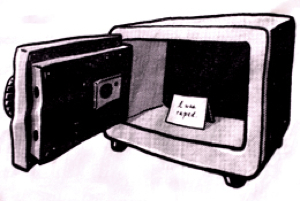A couple of t-shirt designs have ignited discussion in the interwebosphere of late, and since they represent the extremes of feminism (i.e., radical feminist to decidedly NOT feminist), I thought it would be interesting to put them in conversation with each other, especially under the rubric of what constitutes "free speech" and "visual rhetoric."
First is the "I was raped" t-shirt masterminded by Jennifer Baumgardner, the poster woman for radical third-wave feminism:

Baumgardner was quoted in The New York Times as hoping to "force [rape] into everyday conversation." Many, many people find such a maneuver to be terribly intrusive and not appropriate for everyday wear. To quote one commenter on Jezebel.com, "Worn at a protest, a walk, a rally or your group's booth at the student center, fine. Cheesecake Factory? Not so much."
Essentially, people's reactions mirror the issue Baumgardner is trying to combat: we treat rape as an untouchable subject in this society. Will donning a confessional t-shirt in the public sphere (without the context of a Take Back the Night rally or similar event) help to de-stabilize the taboo? Or will it merely drive people away from the topic even further?
What does it mean, too, that the image is printed on American Apparel brand tees? Many folks have pretty valid reasons to hate American Apparel (the exploitative advertisements, founder Dov Charney's tendency to masturbate openly in the workplace, the revelation that the company is NOT sweatshop-free); does this undermine Baumgardner's project?
*with apologies to Jezebel.com
Comments
Speaking of rape...
I find that rape comes up a lot in business networking conversations. It may be that I'm just a very open person that women feel safe talking to (I am a woman) or if they just need to tell someone and I happen to be handy.
I stated recently in a podcast that was taken off of the Internet rather quickly, "Please don't tell people you have been raped at a networking event, assume you're talking to a kindred spirit, I mean, haven't we all been raped?"
It was unintentionally callous of me, but I do not live in a world where this is hidden information. It's not something my friends and I discuss, but every woman I know has been violated physically by a man at some point in her life, including me.
It's a shared consciousness that we all understand and don't feel the need to talk about. As such, we don't talk about it.
Does that mean we are all catering to the curtain of silence? I think the best I can do is teach my children to be more careful than I was, and offer myself as a shoulder to cry on and arms to hold her when something inevitably happens.
I don't think rape is a bad word, but the emotional baggage that comes with being a victim of rape or the loved one of a victim of rape means that you cannot talk about it unless you are in an emotionally safe place.
For the emotional safety of everyone involved in the conversation.
We all heal in different ways, and this t-shirt assumes we all heal by telling the world. This is not the case for many.
The only way I think this t-shirt would work is if EVERY woman who had been violated by a man in any way (because I believe you can be raped emotionally and spiritually without having a finger laid on you) wore it on the same day.
So we would all realize we are not alone. I think that would be a great way to begin the healing process for many who desperately need it.
I wanted to post on this
I wanted to post on this last week, but have been out of town! I'm so glad you put this up.
This issue this shirt raises for me, in addition to those that Melanie listed, has to do with the "authenticity" that the shirt bestows on the wearer. Will people assume that those wearing these t-shirts have been raped? Does the medium of the t-shirt negate its supposed confessional quality? But if the shirt loses its status as a personal revelation, does that negate the kind of work the shirt was originally designed to do?
This shirt reminds me of the Texas Association Against Sexual Assault (TAASA) sexual assault awareness campaign, called "Speak Up. Speak Out." The TAASA website includes a description of the campaign:
In this campaign, notice the emphasis on hearing from actual survivors--ostensibly to combat the same kind of silence that Baumgardner wants to shatter.
In the same Jezebel post that Melanie references, the author quotes from a friend of Baumgardner's, Christen Clifford, who says, "There really are so few spaces where it's considered appropriate to talk about [rape]," referencing a dinner party where rape came up and conversation just halted. The author then writes, "Call me old fashioned, but I'm not sure rape is something anyone is ever going to feel comfortable discussing at a dinner party." While that may be the case, I'm disappointed that the author doesn't take her own point further. Instead, to me, Baumgardner's shirt moves rape into a begins to blur the lines between spotlighting the victim (as in the TAASA campaign) and making the fact of rape less easy to dismiss or compartmentalize.